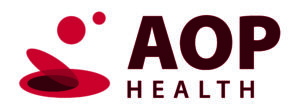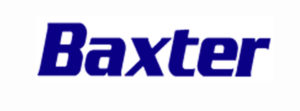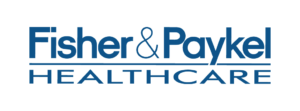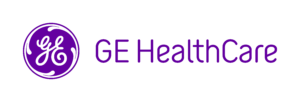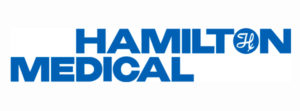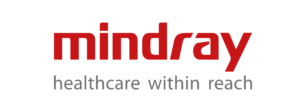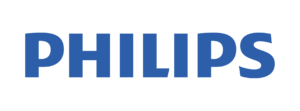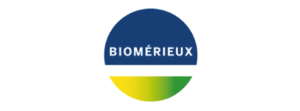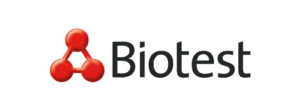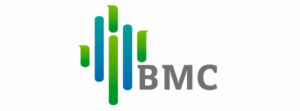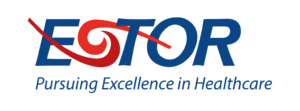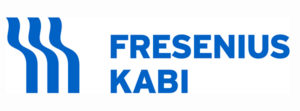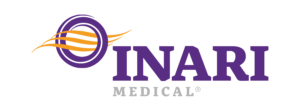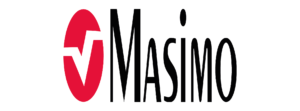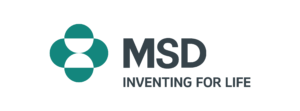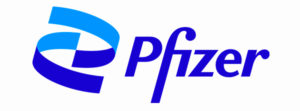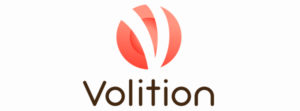37th Annual Congress – Barcelona

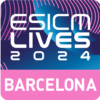
LIVES, October 05-09, 2024, Barcelona (CCIB, International Barcelona Convention Center)
Our annual congress attracts over 5,000 intensive care physicians, anaesthetists, trainees and nursing and allied health professionals from +100 countries worlwide. Such extraordinary diversity makes LIVES the place where you can absorb the latest evidence and advances in patient care through multidisciplinary discussions and talks, interactive courses, demonstrations of the newest technology and simulation exercises.
Save the date!
Face-to-face in Barcelona, the innovative formats of the different sessions and activities will facilitate networking and knowledge exchange with colleagues and friends.
• 05-06 October ~ Pre-congress Educational Courses Weekend
• 07 October, 16:00-17:30 CEST ~ Welcoming Ceremony followed by Reception
• 07-09 October ~ Congress Scientific Sessions and Educational Workshops
GENERAL INFORMATION
Let's meet in Barcelona
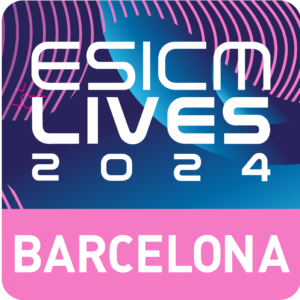 General Information
General Information
In 2024, we invite you once again to join for 5 eventful days, between 05 and 09 October, for pre-congress educational courses, scientific sessions and educational workshops.
• 05-06 October ~ Pre-congress Educational Courses Weekend
• 07 October, 16:00-17:30 CEST ~ Welcoming Ceremony followed by Reception
• 07-09 October ~ Congress Scientific Sessions and Educational Workshops
We look forward to meeting you, in person, in Barcelona!
VENUE ADDRESS
CCIB - Centro de Convenciones Internacional de Barcelona
Plaça de Willy Brandt 11-14,
08019 Barcelona
Spain
ACCESS TO THE VENUE
By public transport
Subway Line L4, El Maresme | Fòrum station
By car
Car Parking: 2 options:
- Shopping Center Diagonal mar (3 first hours free) : https://www.diagonalmarcentre.es/en/parking/
- BSM Parking near the CCIB (3.70 € /hour) : https://aparcamentsbsm.cat/aparcament/pla%C3%A7a-del-forum
No parking spot at the CCIB.
From the airport
Subway:
Line 9 Sud (orange) until Torrassa, then Line 1 (red) until Urquinaona, then Line 4 (yellow) until El Maresme | Forum (1 hour)
Train/Subway:
Line R2 Nord (green) until Barcelona, Passeig de Gracia, then line 4 (yellow) until El Maresme | Forum (50 minutes)
Bus/Subway:
Line A1 or A2 until Placa Espanya, then L1 (red) until Urquinaona, then Line 4 (yellow) until El Maresme | Forum (1 hour)
CONGRESS LANGUAGE
The official language of the Congress is English. There will be no simultaneous translation.
NON-SMOKING CONGRESS
ESICM LIVES 2024 is a non-smoking Congress. Therefore, ESICM thanks the participants in advance for not smoking in the CCIB well as during coffee breaks and reception.
CME Credits
 CME Credits
CME Credits
CONGRESS ACCREDITATION
The ESICM LIVES 2024 Annual Congress, Barcelona, Spain, 07/10/2024-09/10/2024 has been accredited by the European Accreditation Council for Continuing Medical Education (EACCME®) for a maximum of 17,5 European CME credits (ECMEC®s).
PRE-CONGRESS COURSES ACCREDITATIONS
The Advanced Master Course In Acute Respiratory Failure & Mechanical Ventilation, Barcelona, Spain, 05/10/2024-06/10/2024 has been accredited by the European Accreditation Council for Continuing Medical Education (EACCME®) with 12,5 European CME credits (ECMEC®s).
The Advanced Course In Haemodynamics, Barcelona, Spain, 05/10/2024-06/10/2024 has been accredited by the European Accreditation Council for Continuing Medical Education (EACCME®) with 11,5 European CME credits (ECMEC®s).
The Advanced Case-Based Course In ECLS/ECMO, Barcelona, Spain, 05/10/2024-06/10/2024 has been accredited by the European Accreditation Council for Continuing Medical Education (EACCME®) with 10,5 European CME credits (ECMEC®s).
The Art of Trauma Care, Barcelona, Spain, 05/10/2024-06/10/2024 has been accredited by the European Accreditation Council for Continuing Medical Education (EACCME®) with 10 European CME credits (ECMEC®s).
Fostering Sustainable Practices In Intensive Care, Barcelona, Spain, 05/10/2024-06/10/2024 has been accredited by the European Accreditation Council for Continuing Medical Education (EACCME®) with 9,5 European CME credits (ECMEC®s).
General Intensive Care Ultrasound, Barcelona, Spain, 05/10/2024-06/10/2024 has been accredited by the European Accreditation Council for Continuing Medical Education (EACCME®) with 10 European CME credits (ECMEC®s).
The Advanced Course On Intensive Care Echocardiography, Barcelona, Spain, 05/10/2024-06/10/2024 has been accredited by the European Accreditation Council for Continuing Medical Education (EACCME®) with 10 European CME credits (ECMEC®s).
Accreditation Statement
Each medical specialist should claim only those credits that he/she actually spent in the educational activity.
Through an agreement between the European Union of Medical Specialists and the American Medical Association, physicians may convert EACCME® credits to an equivalent number of AMA PRA Category 1 Credits™. Information on the process to convert EACCME® credits to AMA credits can be found at https://edhub.ama-assn.org/pages/applications.
Live educational activities occurring outside of Canada, recognised by the UEMS-EACCME® for ECMEC® credits are deemed to be Accredited Group Learning Activities (Section 1) as defined by the Maintenance of Certification Program of the Royal College of Physicians and Surgeons of Canada.
Information regarding the conversion of EACCME® credits
Credit will be converted based on one (1) hour of participation equalling one credit for all activities. Physicians wishing to convert EACCME® credits to AMA PRA Category 1 Credit™ will be required to access the AMA website at https://edhub.ama-assn.org/pages/applictations to obtain the necessary paperwork and instructions. Physicians and other health care professionals will be required to pay a processing fee to the AMA.
For other countries, please contact the relevant national/regional accreditation authority.
Frequently Asked Questions
 Still have questions? See our FAQ below.
Still have questions? See our FAQ below.
Registration:
| Saturday, 5 October | 09:00-18:30 |
| Sunday, 6 October | 08:00-18:30 |
| Monday, 7 October | 07:30-19:00 |
| Tuesday, 8 October | 07:30-18:30 |
| Wednesday, 9 October | 07:30-15:00 |
Exhibition:
| Monday, 7 October | 08:30-19:00* |
| Tuesday, 8 October | 08:30-18:30 |
| Wednesday, 9 October | 09:30-14:00 |
*Networking Reception in the Exhibition Hall from 17:30
Speaker Service Centre:
| Saturday, 5 October | 11:00-19:00 |
| Sunday, 6 October | 08:00-18:30 |
| Monday, 7 October | 07:30-18:00 |
| Tuesday, 8 October | 07:30-18:30 |
| Wednesday, 9 October | 08:30-14:30 |
Cloakroom*:
| Monday, 7 October | 07:00-19:30 |
| Tuesday, 8 October | 07:30-19:00 |
| Wednesday, 9 October | 07:30-16:30 |
*The cloakroom is located in the Entrance Hall (Level 0) of the CCIB. 2.00 EUR will be charged for each piece of clothing and 5.00 EUR for each bag or suitcase.
At the moment, the preliminary programme is available on our website on the e-Planner. The full programme can be viewed on the congress app when available.
Join us on the ESICM TV Studio everyday from 08:40.
If you are a registered delegate, you will be able to access the TV Studio onsite or on the Congress App.
If you are not registered delegate, you can access free of charge the TV Studio on Esicm WEBTV - Esicm WEBTV.
Yes, if you are a registered delegate you will be able to access all of our sessions and watch them again during 3 months indefinitely and as often as you like on the congress app.
All registered congress delegates who attend the congress in Barcelona, will receive a certificate of attendance after the congress by email.
Yes, those who register for the congress and present their abstract onsite will receive an abstract certificate of attendance by email the week after the end of the event.
Please contact the Registration Department at registration@esicm-congress.org
Lost items can be collected at the cloakroom during the Congress. Unclaimed items will be thrown away then.
Restaurants
Lunches are not included in the registration fee. There will be coffee and lunch areas in the Industry Exhibition.
Free Wi-Fi is available throughout the CCIB during the ESICM LIVES 2024 Congress.
SSID: LIVES2024
Password: lives2024
PROGRAMME
Abstracts
 Abstracts
Abstracts
ABSTRACT BOOK
All accepted abstracts are published in electronic format on the ICMx website in the ICMx Supplement of October 2024: ESICM LIVES 2024 | Intensive Care Medicine Experimental (springeropen.com)
You can find all Abstract Books from 2014-2023 HERE.
Review Process
The abstract submission system closed on 22 April. This abstract deadline is firm and any abstracts received after the deadline will not be accepted.
The submitted abstracts have been examined anonymously by the ESICM Reviewers and ESICM Congress Committee. We thank the abstracts submitters and congratulate those selected. We also encourage the authors not selected to resubmit for the ESICM LIVES 2025 in Munich.
The authors have been informed of acceptance/rejection of their abstract by email on 18 June. Presentation details have been sent on 28 June.
All abstracts selected for presentation at the Congress will be presented either in the form of an oral or an e-poster presentation during the main congress (Mon 07 Oct or Tues 08 Oct or Wed 09 Oct) and will be published in the ICMx Journal.
Abstract Awards
Ten Best Abstracts Awards
Presenters of the 10 best abstracts will receive an award including one free registration to LIVES 2025 (core congress).
Abstracts selected by the jury will be presented in our 2 Abstract Award Winning Sessions during the Congress on Monday 07 October at 10:40-11:55 & Tuesday 08 October at 10:40-11:55 in Room 114:
000200 - Protective mechanisms of CPAP on lungs and diaphragm in experimental Patient Self-Inflicted Lung Injury
P. Cruces, Chile
000201 - Hypoxia inducible factor prolyl hydroxylase inhibitor alleviates heatstroke induced acute kidney injury by activating BNIP3 mediated mitophagy
L. Wang, China
000376 - A hyperinflammatory transcriptomic endotype is associated with a poor outcome in the acute phase of sepsis
B. Snoek, Netherlands
000379 - Continuous on-demand phrenic nerve stimulation to maintain diaphragm activity during mechanical ventilation for acute respiratory failure: The STIMULUS clinical trial
I. Morris, Australia
000527 - The association between diastolic function, fluid balance, NT-proBNP and extubation failure in mechanically ventilated patients
V. Baggen, Netherlands
000602 - Alternative RNA splicing mechanism is involved in the pathophysiology of sepsis
M. Cao, China
001309 - Clinical predictors of VILI risk: a comparison between Driving Pressure and Mechanical Power Ratio
M. Galizia, Italy
001327 - Ghrelin for neuroprotection in comatose cardiac arrest patients: a randomized phase 2 trial
S. Nutma, Netherlands
001494 - Early Moderate Hyperoxia Confers Mortality Benefit in Neurointensive Care Patients with Stroke: A Preliminary Bayesian Analysis of the ANZICS Adult Patient Database
L. Premraj, Australia
001679 - Learning Curve for Intubation with a Hyper-angulated Video Laryngoscope: A Sub Analysis of a large alternating intervention trial
M. Schmidt, Switzerland
Three N&AHP Abstract Awards
Presenters of the 3 best abstracts will receive an award including one free registration to LIVES 2025 (core congress).
Abstracts selected by the jury will be presented in our session "N&AHP unlimited and networking" during the Congress on Tuesday 08 October at 17:10-18:30 in Room 120-121:
000387 - Patients experiences after heart transplantation: systematic review of qualitative studies
M. Danielis, Italy
000574- Guess the weight: The accuracy of estimated weights and the implications on aspects of clinical management in Critical Care
R. Mehta, United Kingdom
001660 - Targeting low value care to reduce healthcare associated carbon emissions: Reducing the unnecessary use of intermittent pneumatic compression in intensive care
L. Hansell, Australia
Scientific Programme
 Scientific Programme
Scientific Programme
At LIVES 2024 in Barcelona, the innovative formats of on-site sessions and activities will facilitate networking and knowledge exchange with colleagues and friends.
The scientific programme will include an ample variety of formats: symposia, dynamic debates, case presentations, interactive lectures and case discussions and many more!
What can you expect at LIVES 2024?
Debates
Take part in in-depth discussions about complex problems/situations that clinicians address in their daily practice. Experts from various areas of intensive care medicine are invited to speak on a set topic, then the moderator and audience can join the debate.
Hot Topics Session
Session at the end of the congress devoted to the presentation of cutting-edge research on the cornerstones of Intensive Care Medicine to a very large audience.
Latest research from the ICM Journal
This session will discuss a series of papers recently published in the Intensive Care Medicine Journal and deep dive into their implication for clinical practice.
NEXT Lounge
The place for young intensivists and ICM trainees to meet, mingle and enjoy a specially-designed parallel scientific programme.
Poster Stations
Abstract presenters will have a brief discussion of their research, answering questions and comments by the moderators and the audience.
Educational Programme
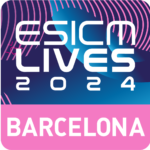 Education & Training at LIVES 2024
Education & Training at LIVES 2024
State of the Art Content through Innovative Education & Training
LIVES 2024 is designed to meet the educational needs of our Intensive Care community, and facilitate best practice exchange for better clinical performance and patient outcome.
Following the technological advances, LIVES 2024 will integrate the digital innovation in the education dimension through Virtual Reality and Immersive Learning.
Thematic trainings and events will wait for you, from pre-congress courses to workshops planned during the congress.
Seize the opportunity to learn from international experts and peers in person! Secure your spot now - registrations are open!
We hereby would like to wholeheartedly thank all the companies who provided material support for our educational activities at the congress.
Pre-Congress Courses, October 05-06
Join our pre-Congress courses based on your topic of interest and level of expertise.
The following events will be held at LIVES 2024:
Limited availability!
The joint EuroELSO & ESICM Advanced Case Based ECLS/ECMO Course will reinforce at advanced level through case-based discussions and practical examples the key principles of ECMO such as VV-ECMO for adult respiratory failure, ECMO for refractory cardiac arrest (ECPR), ECMO for adult cardiac failure, weaning from VA-ECMO support, VA-ECMO versus other short-term circulatory support devices.
This event is part of a joint EuroELSO and ESICM learning programme to provide specialised training in extracorporeal techniques to healthcare professionals interested in the field. Certificates may be validated at EuroELSO on the path to the ELSO Adult ECMO Practitioner Certification (E-AEC).
Requirements to join the course
Participants should have at least a basic understanding of, and preferably clinical experience with extracorporeal membrane oxygenation. They can either be
- Intensivist (in training), Anaesthesiologist (in training), Perfusionist (in training) or MD with at least 2 years of clinical experience in intensive care
OR - Registered ICU Nurse with at least two years of experience treating critically-ill patients
Complement this course with a practical workshop that you can book separately during the congress.
Limited availability!
The ESICM Advanced Course on Critical Care Echocardiography is designed for intensivists who have achieved a basic level of education and training in the use of echocardiography in an intensive care setting and would like to obtain advanced knowledge and certification of their competency.
Complement this course with a practical workshop that you can book separately during the congress.
Limited availability!
The ESICM Advanced Course in ARF & MV will integrate at an advanced level topics such as non-invasive respiratory support in acute hypoxemic failure and lung protective ventilation under assisted modes. Interactive lectures will alternate with clinical case discussions, practical demonstrations and discussion of techniques. The course will conclude with a friendly competition and awards.
Requirements to join the course
- Completed the ESICM Foundation course in ARF & MV
OR - Intensivist (in training), Anaesthesiologist (in training), or physician with at least 2 years of clinical experience in intensive care with ventilated patients
OR - Registered ICU Nurse / respiratory therapist with at least two years of experience treating ventilated patients
Complement this course with a practical workshop that you can book separately during the congress.
Limited availability!
This ESICM Advanced Course in Haemodynamics will integrate and simulate at advanced level a management plan for the patient with septic shock.
To do so, participants will get immersed in realistic clinical scenarios using different methodologies including Virtual Reality.
Requirements to join the course
Participants should have at least a basic understanding of, and preferably clinical experience with, invasive arterial pressure monitoring and derived variables, transpulmonary thermodilution, continuous cardiac output monitoring by pulse contour analysis, pulmonary artery catheterization and critical care ultrasound.
Limited availability!
The ESICM Fostering Sustainable Practices in Intensive Care Course aims to provide important insights in the importance of sustainability in the ICU and will finalize with a call for action.
The imperative to embrace environmental sustainability within healthcare is underscored by the many impacts of climate change on public health. The healthcare sector's contribution to global greenhouse gas emissions is in stark contradiction to its mission of promoting health, necessitating a critical look at how healthcare is delivered. Beyond the immediate and direct environmental consequences, the broader implications of climate change, including increased incidence of heat-related illnesses, respiratory conditions, and vector-borne diseases, place additional strain on healthcare resources, further amplifying the urgency for sustainable transformation.
As a leading and global society in intensive care medicine, ESICM acknowledges this critical moment to lead by example, showing that it is possible to maintain, and even enhance patient care standards while significantly mitigating environmental impact of the activities in the ICU.
Limited availability!
The ESICM General Intensive Care Ultrasound (GENIUS) course is a comprehensive, learner-centric course which aims to support physicians in achieving the competencies described in the recently published ESICM guidelines on ultrasound competencies.
The two-day training programme will offer theoretical insights, hands-on learning and case discussions with experts in critical care ultrasound. There will be ample opportunities to discuss and interact with colleagues who share a passion for critical care ultrasound, building learning as well as research networks.
Limited availability!
The ESICM Art of Trauma Care Course aims to provide realistic and pragmatic trauma teaching based on most recent evidence. It focuses on recognizing and managing a severely injured patient in the resuscitation room and ICU over the first 48 hours, strategies for organ failure in trauma, non-technical skills, team-work, communication, decision-making under uncertainty, use of cognitive support, SOP, checklists, stress and cognitive load management.
Congress Workshops, October 07-08-09
Please note: Registration for the congress is a prerequisite for signing up for the below practical workshops carried out during the congress.
Workshops
Skill and upskill through practical hands-on and simulations.
Duration: 2,5 hours
Limited availability!
While the pre-Congress Advanced Course on Critical Care Echocardiography combines interactive lectures, keynotes and case debates, the practical workshop to be carried out during the congress will help you to complement theory with practice through a two-component worskhop:
- Component 1: Manipulation of TEE probe in advanced CCE (1 h)
- Component 2: Image interpretation in advanced CCE (1,5h)
Please note: workshop slots may be booked also by participants who are not registered for the EDEC diploma.
Complement this practical two-component workshop with the pre-Congress Advanced Course on Critical Care Echocardiography.
Duration: 4 hours/workshop
Limited availability!
Learning objectives:
- Use of supraglottic airway devices in difficult airway management
- Conduct percutaneous emergency cricothyroidotomy for rescue oxygenation.
- Carry out percutaneous tracheostomy in ICU
- Select suitable patients suitable for awake tracheal intubation, preparation and performance using a flexible bronchoscope.
Content
- Station 1 - Supraglottic device & video laryngoscopy
- Station 2 - Emergency front of neck airway
- Station 3 - Basics of bronchoscopy in the ICU
Duration: 4 hours/workshop
Limited availability!
The AMS workshop will consist of a case-based, expert-led workshop that will immerse participants in realistic and safe learning environments through Virtual Reality. Participants will be empowered to enjoy the opportunities that come with the digital decade.
Learning objectives
- Identify the likely infection and initial empiric antimicrobial selection (including initial PK/PD considerations)
- Understand and analyse the role of diagnostics in identifying the microorganisms involved in infection and their resistance patterns
- Examine the modification of antimicrobial therapy in light of microbiology, clinical evolution and TDM (where appropriate)
- Understand and analyse the importance of source control in infection management, and how this contributes to AMS
- Discuss and evaluate the importance of multi-professional teams in each of the above steps – intensivists, nurses, pharmacists, microbiologists, surgeons.
- Report how individual patient data contributes to surveillance, and feeds into decision making and guidelines
Please note: The workshop is part of the AMS learning pathway, and is supported by an unrestricted educational grant from bioMérieux. Workshop slots may be booked by both AMS pathway participants and other participants interested in the topic.
Joint event ESICM & EuroELSO
Duration: 4 hours/workshop
Limited availability!
Certification: Certificates are issued in collaboration with EuroELSO. Certificates may be validated at EuroELSO on the path to the ELSO Adult ECMO Practitioner Certification (E-AEC).
Learning objectives
- Understand the respective indications and basic management of V-A and V-V ECMO
- Identify basic circuit components & mechanical troubleshooting
- Understand the physiology of ECMO-patient interactions
- Identify and manage drainage insufficiency
- Identify and manage recirculation (V-V)
- Identify and manage LV distension (V-A)
- Identify and manage differential oxygenation (V-A)
- Understand the basics of weaning from V-A and V-V ECMO-support
Content
- Station 1 - V-V station
- Station 2 - V-A station
- Station 3 - Normal pump physiology and troubleshooting
Complement this practical workshop with the pre-Congress Advanced Focus Session in ECLS/ECMO.
Duration: 4 hours/workshop
Limited availability!
Learning objectives
- Define the goal of recruitment strategies in patients with hypoxemic lung failure
- List techniques available a the bedside to assess potential for lung recruitment in patients with hypoxemic lung failure
- Perform at the bed side manoeuvres to lung recruitment in patients with hypoxemic lung failure
- To select the optimal PEEP level limiting atelectasis and pulmonary over distension in patients with hypoxemic lung failure
- Explain the goals and risks of mechanical support in patients with obstructive lung disease
- Determine the optimal level of PEEP at the bed side in patients with obstructive lung disease under controlled and assisted ventilation
- Determine the optimal level of inspiratory support w/o increasing risks associated with pulmonary hyperinflation in patients with obstracttive pulmonary disease.
- Describe the rationale for using oesophageal pressure as a surrogate for pleural pressure in patients with acute respiratory failure
- Perform valid measurements of oesophageal pressure in patients on mechanical ventilation
- Set PEEP based on oesophageal pressure at the bed side.
- Set inspiratory support based on lung protection using the oesophageal balloon
- Measure inspiratory effort in spontaneously breathing patients at the bedside using the oesophageal balloon.
- List the rational for advanced respiratory monitoring using ultrasound and EIT in patients with acute respiratory failure
- Use ultrasound to assess respiratory muscle function in critically ill patients
- Understand the role of lung ultrasound in patients with acute respiratory failure and apply this at the bedside
Content
- Station 1 - Lung recruitment: driving pressure, R/I ratio, AOP, lung hysteresis, APRV
- Station 2 - Setting the ventilator in obstructive lung disease
- Station 3 - Oesophageal pressure for assessment of effort and trans pulmonary pressure
- Station 4 - Demonstration of lung and diaphragm ultrasound, EIT
Complement this practical workshop with the pre-Congress Advanced Course in ARF & MV
Duration: 4 hours/workshop
Limited availability!
Learning objectives hands-on :
-
- Learn how to set up a CRRT circuit
- Identify practical issues associated with vascular access and filter
- Manage and understand common alarms
Content
-
- Station 1: Alarms / troubleshooting
- Station 2 - Citrate regional anticoagulation
- Station 3 - Setup
- Station 4 - Setup
REGISTRATION
Registration Information
 Registration Information
Registration Information
Registration Department
K.I.T. Group GmbH | Association & Conference Management | Kurfürstendamm 71, 10709 Berlin, Germany | Tel: +49 (0)30 24 603 319 | Email
Terms and Conditions
The registration fee for full Congress registration includes entry to all sessions, the exhibition area, the poster area and the welcoming ceremony. It does not include entry to any of the additional Pre-Congress Courses and the Educational Programme (Workshops) or events that can only be attended by invitation of the respective third-party Organiser or are otherwise restricted in access by a third-party Organiser.
CONGRESS FEES
Prices are per person and 10% Spanish VAT is included in below costs.
Core Congress (from Mon 07 Oct until Wed 09 Oct)
No coffee breaks/lunches will be provided as part of the congress package.
| ESICM MEMBER | Early fees Until 14 August | Standard 15 August - 30 Sept | Late fees 01 October - end of the congress | One day ticket*** |
| Physician | 630 € | 730 € | 860 € | 430 € |
| *From Low and Lower Middle Income Country (LMIC) Physician | 430 € | 510 € | 610 € | 350 € |
| **N&AHP (including N&AHP Plus) / *From Low and Lower Middle Income Country (LMIC) **N&AHP | free of charge | free of charge | free of charge | free of charge |
| Physician In Training | 220 € | 290 € | 390 € | 250 € |
| *From Low and Lower Middle Income Country (LMIC) Physician In Training | 160 € | 230 € | 330 € | 250 € |
| NON-MEMBER | ||||
| Physician and other Non-Member | 900 € | 1,000 € | 1,150 € | 610 € |
| Physician in Training | 410 € | 480 € | 580 € | 450 € |
| **N&AHP | free of charge | free of charge | free of charge | free of charge |
| Medical Student | Free for the first 200 registrants, then 130 € | 160 € | 190 € | 110 € |
Pre-Congress Courses WEEKEND (Sat 05 Oct & Sun 06 Oct) - Seats limited!
| ESICM MEMBER | Until 14 August | From 15 August |
| Physician | 500 € | 620 € |
| Physician In Training / **N&AHP | 300 € | 420 € |
| NON-MEMBER | ||
| Physician | 760 € | 880 € |
| Physician In Training / **N&AHP | 480 € | 600 € |
| Medical Student | 300 € | 420 € |
Pre-congress course WEEKEND on Fostering Sustainable Practices In Intensive Care (Sat 05 Oct & Sun 06 Oct) - Seats limited!
| ESICM MEMBER | No deadline |
| Physician | 200 € |
| Physician In Training / **N&AHP | 100 € |
| NON-MEMBER | |
| Physician | 320 € |
| Physician In Training / **N&AHP | 220 € |
| Medical Student | 100 € |
Congress Workshops WEEK (Mon 07 Oct / Tue 08 Oct / Wed 09 Oct) - Seats limited!
| If registered for the Haemodynamics, Mechanical Ventilation, Adv CCE pre-congress courses Until 14 August |
If NOT registered for the Haemodynamics, Mechanical Ventilation, Adv CCE pre-congress courses Until 14 August |
From 15 August | |
| ESICM MEMBER | 80 € | 120 € | 260 € |
| NON-MEMBER | 80 € | 160 € | 300 € |
Please note: Registration for the congress is a prerequisite for signing up for the educational sessions carried out during the congress.
NB:
Registrations for more than 5 (five) participants will be handled separately as a group booking.
We also offer free registration for Media representatives. Please send a valid document (press ID) to the ESICM Registration Department by Email before you submit your online registration.
*Low and Lower Middle Income Country (LMIC), as per the World Bank classification.
**N&AHP may be any nurse or allied healthcare professional (see professions here). Industry Representatives cannot be considered as Allied Health Professionals.
***To be purchased on-site.
If you are not yet a member of ESICM, there is no better time to join.
Join now! and benefit from this offer and all the other advantages membership of our global intensive care community brings.
More information about ESICM membership fees, HERE
Registration Dates
• Early registration: until 14 August 2024, 23:59 CEST
• Standard registration: from 15 August until 30 September 2024, 23:59 CEST
• Late registration: from 01 October until end of the congress
Letter of invitation
Individuals requiring an official Letter of Invitation can request one from the ESICM Registration Department. To receive a Letter of Invitation, attendees must first register to the Congress and submit payment in full.
The Letter of Invitation does not financially obligate the K.I.T. Group or ESICM in any way. All expenses incurred in relation to the Congress are the sole responsibility of the attendee.
Hotel Accommodation
 Hotels in Barcelona
Hotels in Barcelona
A number of hotels in different categories have been pre-booked at preferential rates for the congress. Rates include breakfast, local VAT and city tax. The hotels are located both close to the congress venue and in the city centre, with convenient and fast routes to the congress venue.
Book your hotel accommodation ahead of time and benefit from the best rates and choices HERE !
Please contact the Hotel Department for further information.
Accommodation
K.I.T. Group GmbH is the official housing agency, selected by the congress organiser, to be in charge of the hotel bookings for ESICM 2024. Individual bookings and small groups of up to 10 delegates can be made via the BOOKING PLATFORM.
Group Bookings
Please note that group reservations, 10 rooms or more, will be handled with separate contracts and separate regulations. Please contact the Hotel Department for further information.
The designated official accommodation partner for the ESICM LIVES Annual Congress 2024 in Barcelona is K.I.T. Group GmbH:
K.I.T. Group GmbH
Kurfürstendamm 71
10709 Berlin
Germany
Tel. +49 30 24603 209
Email
Your hotel reservation will be part of the Congress Reservation block booking and the K.I.T. Group GmbH will be available to provide support.
SPONSORSHIP & EXHIBITION
Sponsorship Opportunities & Exhibition
 Industry Sponsoring & Exhibition
Industry Sponsoring & Exhibition
For questions regarding sponsorship, please contact:
Joel Alexandre
ESICM CEO
Email address: Joel.alexandre@esicm.org
Elise Maquestiaux
ESICM Events & Sponsors Coordinator
Email address: Elise.Maquestiaux@esicm.org
EXHIBITION SPACE
The online exhibition booking portal (ESOS®) will open on 30 January 2024.
In order to book your Exhibition Space, please register to ESOS® by clicking on the following link: ESOS® ESICM LIVES 2024
For questions regarding exhibition, please contact:
Jelena Milovic
K.I.T. Group
Email address: industry@esicm-congress.org
MEDTECH EUROPE CODE
This event is compliant with the MedTech Europe Code of Ethical Business Practice, see here
AIFA
All the Italian Pharmaceutical Companies that need to obtain AIFA approval, must contact:
Atlante Viaggi Italia Srl
Via M. Bandello, 1
20123 Milano
Tel. +39 02 481 86 91
Sponsors & Exhibitors
The ESICM would like to wholeheartedly thank the following companies who are entitled to be recognised as:

